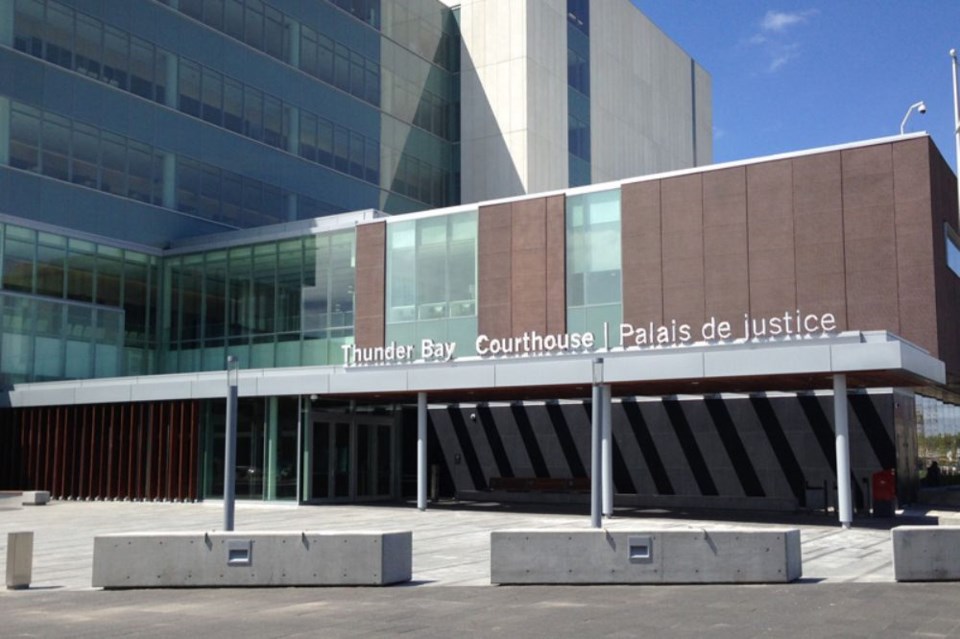THUNDER BAY – As the jury begins attempting to reach a verdict in the David Wilson murder trial, an outcome of not guilty is not a consideration.
Deliberations in the second-degree murder trial began Wednesday morning at the Thunder Bay Courthouse, following five days of evidence last week and closing arguments from Crown prosecutor Rob Kozak and defence lawyer Neil McCartney earlier this week.
During her charge to the 12-member jury, Justice Helen Pierce told them the only two verdicts they can reach are guilty of second-degree murder or not criminally responsible.
Wilson has admitted to fatally stabbing 48-year-old Robert Barbeau in the parking lot of their McLaughlin Street apartment complex on the evening of June 5, 2014. Barbeau died in hospital as a result of his injuries three days later.
But the 50-year-old has pleaded not guilty by reason of being not criminally responsible for his actions as a result of mental disorder.
In most criminal cases, the burden of proof is on the Crown to convince the jury beyond a reasonable doubt the accused is guilty of the alleged offence.
“In this case the defence admits the elements of this offence have been proven beyond a reasonable doubt,” Pierce told the jury.
The onus is flipped when arguing not criminally responsible, as the defence must prove it is more likely than not the accused either did not appreciate the nature and quality of their actions or was incapable of knowing the actions were wrong and did not have the ability to apply that knowledge.
Both the Crown and defence Wilson has a lengthy history of mental illness, being diagnosed with paranoid schizophrenia for more than 20 years and undergoing multiple stays in psychiatric units.
They are also in agreement Wilson was able to appreciate the nature and quality of his actions, knowing the physical consequences stabbing Barbeau in the head with a hunting knife would lead to serious injury or death.
During the evidence phase, McCartney relied on a report from forensic psychiatrist Dr. Robert Sheppard, who examined Wilson at the Thunder Bay Regional Health Sciences Centre in the months immediately following the stabbing.
In his report, Sheppard concluded Wilson is not criminally responsible for the killing and that there was no reality-based motive for the attack.
McCartney also called witness testimony from Scott Wilson, the accused’s nephew, who described an unprovoked attack just 11 days prior to the stabbing which was seemingly fueled by delusions.
Kozak introduced a report from forensic psychiatrist Dr. Mark Pearce, who assessed Wilson eight months after the offence.
Pearce asserted while Wilson was moderately ill at the time of the murder, he was not experiencing psychotic symptoms to the extent that would qualify for not criminally responsible.
Instead, Pearce testified he believed the killing was driven by rage and a dislike for the victim due to past grievances and a conflicted relationship.
